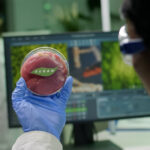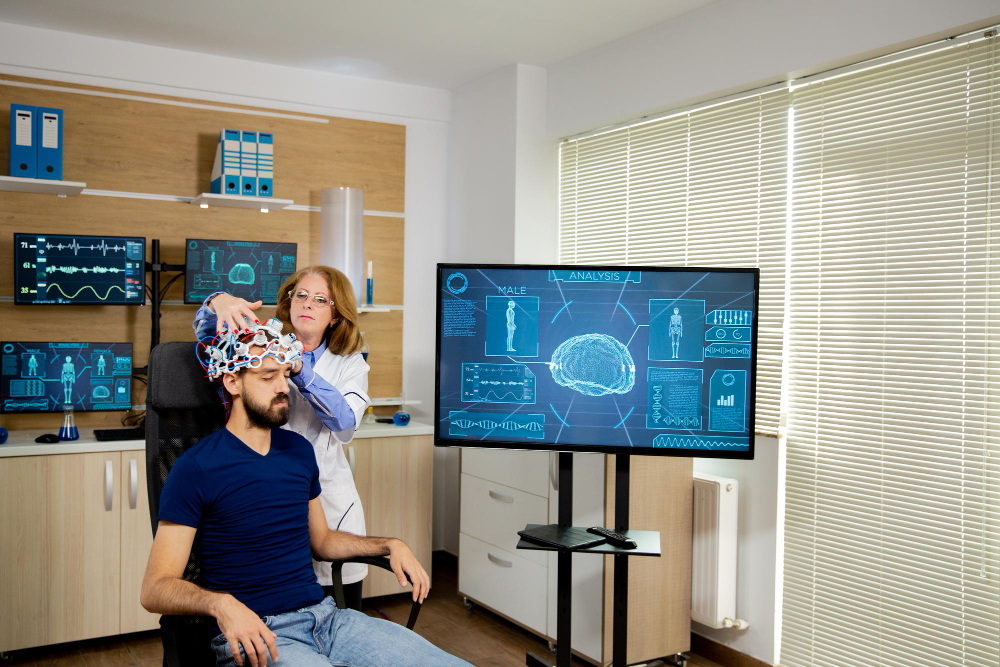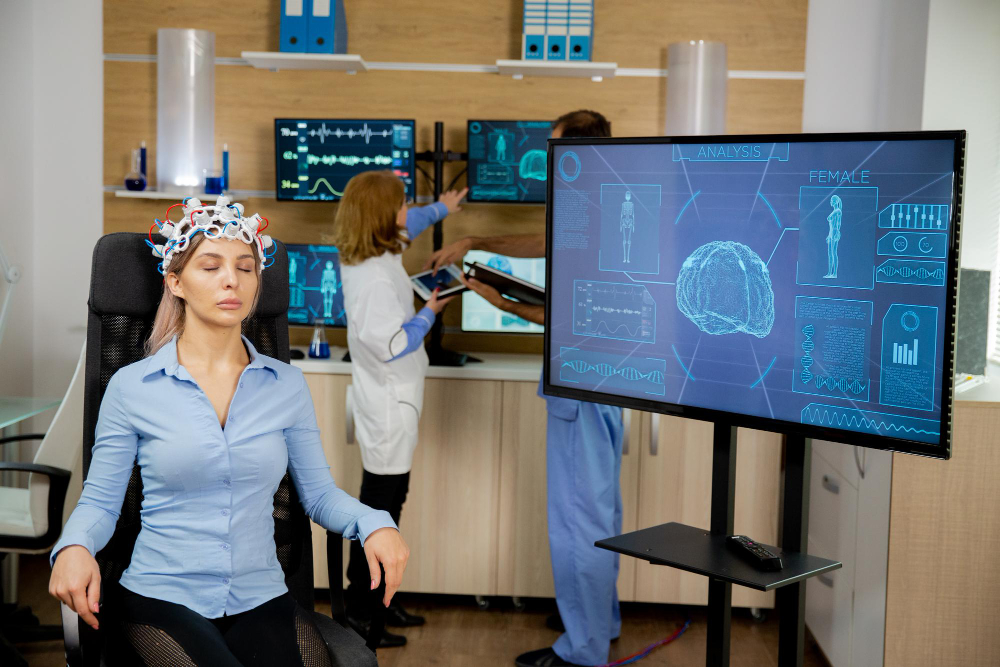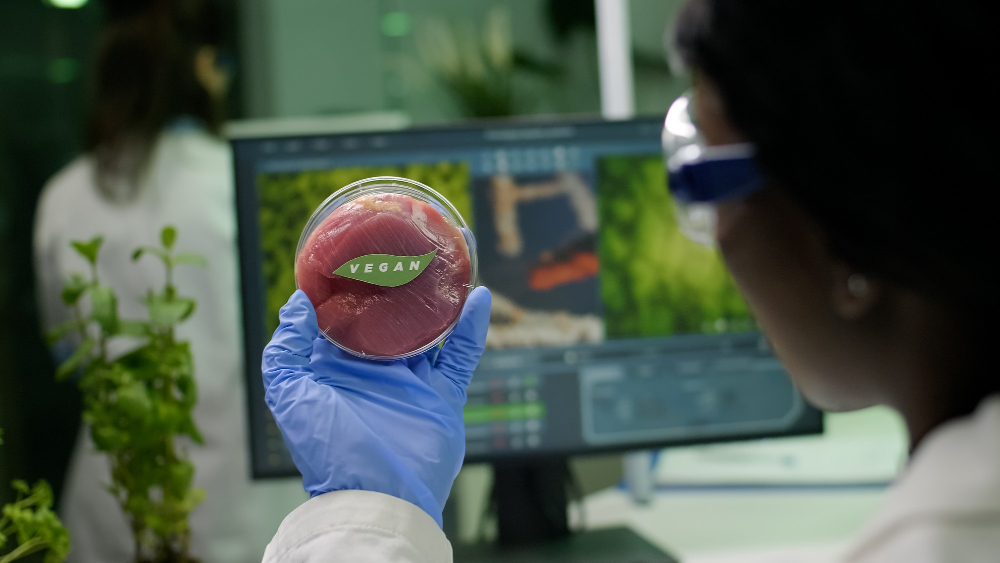The Future of Personalized Medicine — How DNA Will Decide Your Treatment
Imagine walking into a doctor’s office where your treatment plan isn’t based on averages or trial-and-error — but on your DNA, your lifestyle, and your unique biological makeup. That’s the promise of personalized medicine, a revolutionary approach that’s reshaping healthcare as we know it.
By decoding your genome, doctors can now predict which diseases you’re prone to, which drugs will work best for you, and even how your body will respond to certain foods. The age of one-size-fits-all medicine is ending — and the era of DNA-driven care has begun.
1. What Is Personalized Medicine?
Personalized medicine (also known as precision medicine) is a healthcare model that tailors prevention, diagnosis, and treatment to each person’s genetic profile.
Instead of treating diseases based on population averages, doctors use genetic, environmental, and lifestyle information to design precise therapies for individuals.
Key Features
- Treatment based on genomic sequencing
- Predictive prevention — identifying risks before illness develops
- Drug optimization — finding the right dose and type for your DNA
- Targeted therapies that act on specific molecular pathways
This approach transforms medicine from reactive (treating after illness strikes) to proactive (preventing and personalizing care before it’s too late).
2. The Role of Genomics — Your DNA as a Medical Blueprint
Every human carries roughly 20,000 genes, each encoding instructions for how your body functions. Variations in these genes — called mutations or polymorphisms — influence everything from how you metabolize drugs to your risk for diseases like cancer, diabetes, or Alzheimer’s.
By sequencing your genome, scientists can analyze millions of data points to uncover these variations.
What Genomics Reveals
- Disease susceptibility: Early warning for inherited conditions.
- Drug response: How your body processes medication (pharmacogenomics).
- Nutrigenomics: How your genes affect your metabolism and diet.
- Longevity factors: Genes related to cellular aging and repair.
Your DNA acts as a blueprint for your health, guiding doctors toward interventions that fit your biology perfectly.
3. Pharmacogenomics — The Right Drug at the Right Dose
One of the most powerful applications of personalized medicine is pharmacogenomics, the study of how genes influence drug response.
Why It Matters
- Some people metabolize drugs too quickly, rendering them ineffective.
- Others process drugs too slowly, causing toxicity or side effects.
- Traditional prescriptions often rely on “trial and error” — wasting time, money, and lives.
With DNA-guided insights, doctors can now predict your response to medication before you ever take it.
Examples
- CYP2D6 gene: Affects how you process antidepressants and painkillers.
- BRCA1/2 genes: Guide cancer treatment with PARP inhibitors.
- DPYD gene: Helps avoid dangerous reactions to chemotherapy.
Pharmacogenomics ensures that every pill prescribed is safe, effective, and tailored to you.
4. DNA and Cancer Treatment — Precision Oncology
Cancer is not a single disease — it’s a collection of thousands of genetic mutations gone awry. Personalized medicine allows doctors to map the tumor’s genetic code and choose treatments that target its specific mutations.
Breakthroughs in Precision Oncology
- Targeted therapies like Imatinib and Trastuzumab block cancer-causing proteins.
- Liquid biopsies detect cancer DNA in blood for early, non-invasive diagnosis.
- AI algorithms predict which treatments a tumor will respond to.
Instead of traditional chemotherapy, which kills both healthy and cancerous cells, precision oncology attacks only the tumor’s vulnerabilities.
This approach is already improving survival rates in lung, breast, and blood cancers — and the list keeps growing.
5. Predictive Genomics — Preventing Disease Before It Starts
What if you could know your risk for major diseases decades in advance — and take steps to prevent them? That’s exactly what predictive genomics offers.
By analyzing genetic markers linked to chronic illnesses, doctors can recommend lifestyle and medical interventions long before symptoms appear.
Examples
- APOE gene variants: Predict Alzheimer’s risk.
- FTO and TCF7L2: Linked to obesity and type 2 diabetes.
- COL5A1: Associated with tendon injury risk in athletes.
Predictive genomics shifts healthcare from “treating illness” to maintaining wellness, empowering individuals to take charge of their own health trajectories.
6. The Role of AI and Big Data in Personalized Medicine
Genomic data is incredibly complex — analyzing it requires immense computing power. This is where artificial intelligence (AI) comes in.
AI algorithms can process billions of DNA sequences, identify hidden patterns, and predict disease outcomes with remarkable accuracy.
AI Applications
- Detecting rare mutations in vast genomic databases.
- Matching patients with clinical trials tailored to their DNA.
- Developing personalized drug compounds.
- Enhancing diagnostic precision in imaging and pathology.
By merging AI with genomics, researchers are moving toward fully automated precision medicine, where diagnosis and treatment plans are generated in real time.
7. How Lifestyle Data Complements DNA Insights
Your DNA may set the foundation, but your environment and habits determine how those genes behave — a field known as epigenetics.
Wearable health tech, nutrition trackers, and sleep monitors now provide continuous lifestyle data that can be integrated with genetic information to form a holistic health profile.
Practical Example
- A DNA test might reveal a risk for type 2 diabetes.
- Your wearable device shows poor sleep and inactivity.
- AI integrates both data streams to design a customized health plan — including diet, fitness, and medication.
This synergy between biology and behavior represents the true power of personalized medicine.
8. Ethical and Privacy Challenges
While the benefits are extraordinary, personalized medicine raises serious ethical concerns.
Key Issues
- Genetic privacy: Who owns your DNA data?
- Discrimination: Could insurers or employers misuse genetic information?
- Informed consent: Do patients fully understand what their results mean?
Governments and researchers are developing strict data protection frameworks, ensuring that your genomic information remains confidential and secure.
As technology advances, balancing innovation with ethics will be vital.
9. Real-World Success Stories
Personalized medicine is already saving lives around the world.
Examples
- Cystic Fibrosis: Targeted drugs like Ivacaftor correct specific gene defects.
- Breast Cancer: HER2-positive patients receive tailored therapy (Herceptin).
- Leukemia: CAR-T cell therapy uses a patient’s own immune cells to destroy cancer.
- Cardiology: Genetic testing prevents adverse reactions to blood thinners like Warfarin.
Each breakthrough brings us closer to a healthcare model where no two patients are treated the same way.
10. The Future — DNA as Your Health Passport
In the next decade, your genomic profile could become a standard part of your medical record.
Predicted Developments
- At-home DNA kits integrated with electronic health systems.
- Personalized vaccines based on immune gene mapping.
- Nanotech drug delivery tuned to your metabolism.
- Predictive AI that recommends daily habits to prevent disease.
By 2035, precision medicine will likely replace traditional diagnostics, turning medicine into a truly individualized science.
Conclusion
The future of medicine lies not in treating diseases, but in understanding the individual. With each breakthrough in genomics, AI, and biotechnology, we move closer to a world where your DNA decides your treatment — safely, accurately, and uniquely.
This transformation means no more trial and error, fewer side effects, and earlier interventions — all powered by the most personal map in existence: your genetic code.
The revolution is already here — and it’s written in your DNA.











